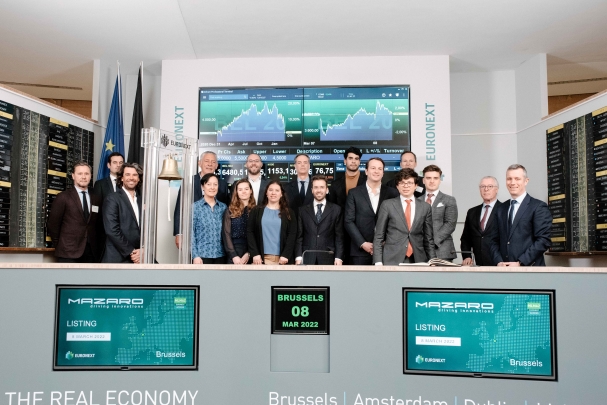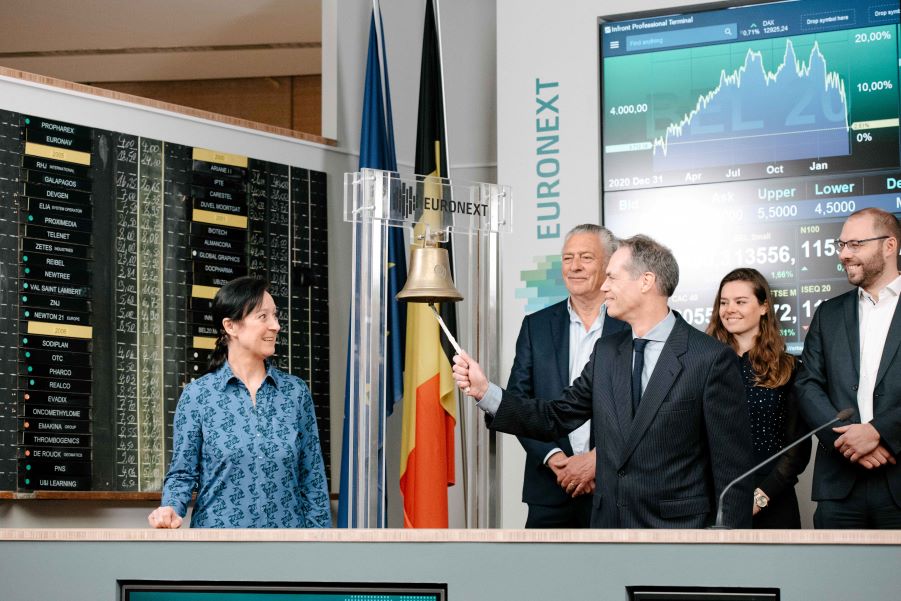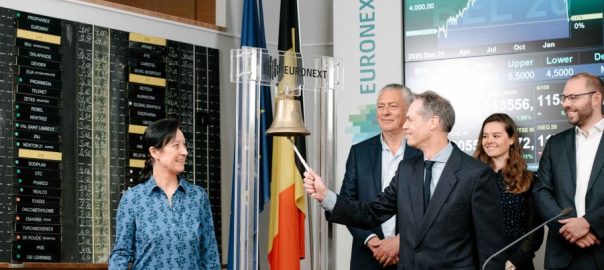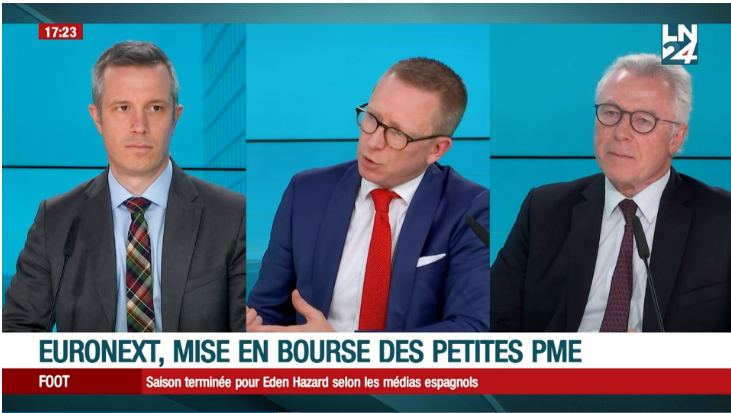On March 8, Belgian firm MAZARO started trading on Euronext Access Brussels following a successful crowdfunding campaign and private placement where 3.7 million euros were raised. Furthermore, MAZARO became the first “crowdlisting” on Euronext Brussels.
MAZARO is an automotive engineering firm that devised and patented a completely new transmission system for a variety of cars, auxiliary, and industrial applications. MAZARO’s goal is to research and optimize the whole driveline for the typical driving cycles of vehicles or industrial applications. With over 25 years of transmission design and development experience, the company has developed subsystems and components, as well as selected sensors and purchased parts to be used in their new designs. They are constantly improving their products by generating new solutions. Filip De Mazière is the creator of MAZARO’s technology, as well as the company’s co-founder and director. For over 25 years, he has been developing transmissions and clutches for major manufacturers of high-end sports cars, passenger automobiles, off-highway vehicles, and material handling equipment.
MAZARO’s decision to go public was not unexpected. Small-cap IPOs are more suited to firms with innovative operations and R&D cycles , such as MAZARO, than to companies with more traditional operations. For example, for a fashion retailer to be relevant, the IPO must be much greater than for an Artificial Intelligence company.
Furthermore, going public will help the company fund its future growth and development. Some examples of how it can do this include financing research, diversifying and expanding its sources of finance, promoting the firm, and benefiting from a market price. Going public will also boost MAZARO’s exposure and credibility by attracting new partners, contracting with new suppliers, and making it easier to recruit and retain staff. Finally, IPOs will help safeguard the managerial autonomy of MAZARO´s founders as it fragments the shareholder structure.
Given the overriding advantages of going public, MAZARO decided to raise funds through a crowdfunding campaign in order to ensure that they could be listed. Crowdfunding is a great option for smaller entrepreneurial companies that need to build both brand awareness and capital. This is exactly what MAZARO managed to achieve through its crowdfunding campaign with Spreds, a Belgian SaaS platform for the digital management of stakeholders.
Initially, the company had set out to raise 500,000 euros for its Initial Public Offering (IPO) however, due to the fact the capital raised during crowdfunding exceeded expectations the limit was raised to 800,000 euros. On the 7th of January, this amount was reached and the first part of MAZARO’s IPO on the Access market had been completed.
Following the success of the crowdfunding campaign, MAZARO went on to raise €2.9 million (incl. €700,000 in the context of authorised capital) from private placement investors. This is the first time that a crowdfunding operation, a private placement and an IPO have been combined in Belgium. Guy Van der Heyden, Managing Director at ONEtoONE explains that “the interest of this formula is to create more liquidity. If we were to limit ourselves to a private placement, we would have had about fifteen shareholders at the time of the IPO. Thanks to crowdfunding, the company began its stock market journey with more than a hundred shareholders, not counting the candidates who subscribed to the crowdfunding round and were not able to provide funding due to the limit imposed.”

Finally, this provided MAZARO with a direct listing on Euronext Brussels’ Access market, which is targeted for SMEs and gives small-cap IPOs simplified access to capital markets. The combination of crowdfunding and a listing on Euronext Access will boost the liquidity of MAZARO’s shares for all crowdfunding participants. Euronext access will serve as a stepping stone for MAZARO and emphasize the firm’s promising future ahead. This assumption can be made based on factual success stories. Direct Energies, for example, began trading on Euronext Access in 2004 with a market capitalization of 18 million euros, and by 2018, the firm had been acquired by Total Energies and is now valued at more than 1.9 billion euros. In the meantime, MAZARO transferred from Euronext Access to Euronext Growth in 2005 (at a market capitalisation of c. €100m) and from Euronext Growth to the regulated market in 2015 (at a market cap. multiplied by close to 8x: €775).
To sum up, MAZARO’s formula combining crowdfunding, private placement, and IPO is a first in our latitudes and may encourage small innovative and highly entrepreneurial companies to break the bias and gain the recognition they deserve The Belgian financial newspaper L’Echo describes MAZARO as “a source of inspiration for others.” Filip De Mazière, CEO of MAZARO comments on the transaction: “In the run up to our listing on Euronext Access, we successfully raised €800,000 from retail investors through a crowdfunding campaign. In addition, we collected an extra €2.9 million from a series of private investors who believe in the added value and high commercial value of MAZARO´s technology. We sincerely thank all investors for their trust. With their support, we are ready for a bright future with a great, positive impact on our environment.”
Media coverage
MAZARO’s achievement drew a lot of media attention from all around the world. A brief video of ONEtoONE manager Guy Van der Heyden being interviewed on Belgian TV station LN24 is linked below. This part of the programme discusses the listing of “small” SMEs, as well as MAZARO’s history and how it came to be listed on the Euronext stock exchange.
Link to video: Success stories: Euronext, mise en bourse des petites PME (ln24.be)
The Banker also recently published an article outlining the stages involved in MAZARO’s listing and crowdfunding procedure. Reporter Shanny Basar discusses how being listed increases visibility and should serve as an incentive for other capital-intensive scale-ups and SMEs.
Click here to read the full article.





